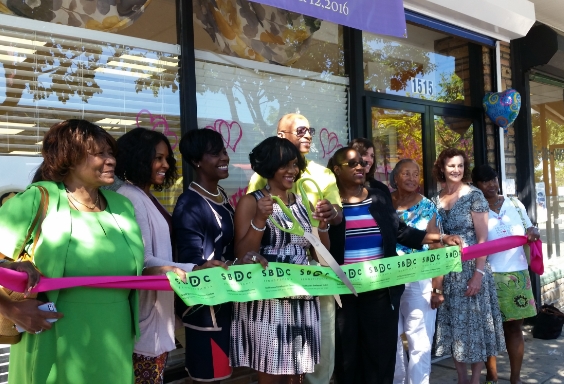The Inquirer: July 28, 2016
Small-business advocates attending a champagne brunch and panel discussion on the state of micro-business and microfinance in Philadelphia Wednesday got a shot of inspiration from a surprise guest.
He is the newly appointed business outreach director at Hillary for America, a rare business liaison post on a presidential campaign staff, he said.An hour into the 90-minute event, held in conjunction with the Democratic National Convention, Rhett Buttle hurried into the meeting room at the Hotel Monaco on Independence Mall. A familiar friend to small business, most recently as president of the Small Business Majority, Buttle was coming with added clout.
Buttle cited the opening line from his job-offer letter from the campaign for the crowd: “Our mission is to make sure every American and every small business has the opportunity to succeed.”
Describing a “huge, huge effort going on integrating business and microbusiness” into Hillary Clinton’s historic campaign to become the first woman U.S. president, Buttle promised the release of “a full small-business platform” in the coming weeks.
Seeking input on “how to better engage you,” Buttle gave his email address (rbuttle@hillaryclinton.com) to the roughly 70 representatives from community development financial institutions and other lenders, local business owners, nonprofit leaders, and convention delegates in the room before heading to his next stop.
He left in his wake several inspired small-business warriors uplifted by the prospect of their issues gaining serious attention.
“Having somebody dedicated to that on the campaign is something I’ve never seen in a presidential campaign,” said Leslie Benoliel, president and CEO of Entrepreneur Works, a Philadelphia nonprofit that helps start and grow small businesses.
She praised the Clinton campaign for recognizing “the linkages between business, employment, and pathways out of poverty.”
“It’s terrific,” said Jonathan Snyder, director of business financial resources for Philadelphia’s Commerce Department. “A national party has recognized the value of small businesses in the growth of our economy.”
Prior to Buttle’s arrival at the nonpartisan, educational panel discussion sponsored by the Association for Enterprise Opportunity, a trade group, and Dun & Bradstreet, a commercial data provider, Snyder himself had made news, announcing the launch earlier this month of the Capital Consortium, a city program to match small businesses with lenders.
“This is all about developing a pipeline of lenders that small businesses might not otherwise have access to,” Snyder said after his presentation.
Affirming that need was Latasha Sampson, owner of Chocolate City Hair Studio and Day Spa in Southwest Philadelphia, who provided a good-natured but agonizing account of her long search for a lender willing to provide the $25,000 she needed to move her thriving business to bigger quarters.
U.S. Rep. Nydia Velázquez (D., N.Y.), the ranking member of the House Small Business Committee, called microbusinesses (those with less than $500,000 in annual revenue) a “key ingredient to growing the economy.”
“It is our job in Congress to ensure all entrepreneurs can secure the capital they need to grow,” she said, calling on program attendees to contact those in Congress “and the future president” to pass still-pending changes to the Small Business Act to improve the lending environment for microbusinesses.
“Access to capital is the lifeblood,” she said. “You need money to make money.”

